CHOOSING YOUR GOATS
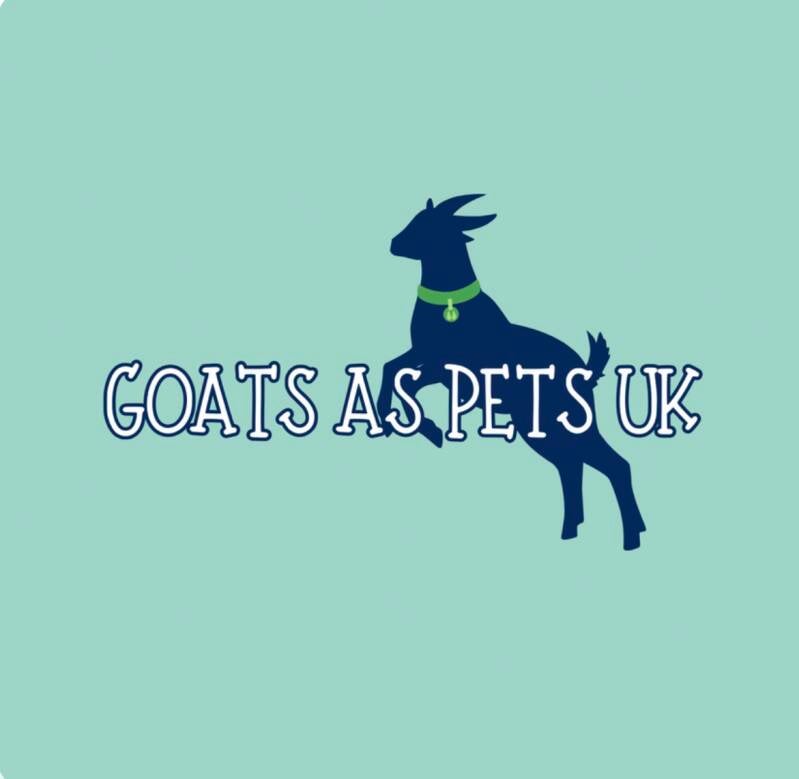
Goats are a long-term commitment — they have around the same lifespan as dogs, typically 12 to 14 years. So just like when getting a dog, it’s vital to choose carefully.
🚫 Avoid These Common Pitfalls
- Don’t buy from markets or Facebook sellers, where kids are often by-products of the farming industry. These kids are frequently too young to be away from their mothers and often end up sickly or underdeveloped. They will need experienced owners.
- Avoid anyone offering to deliver a goat to you — especially if they’re advertising Nigerian Dwarf goats in the UK. These are not a recognised UK breed and are commonly used in scam ads. If it sounds too good to be true, it almost certainly is.
- Make sure that any goat you’re looking to buy has 2 ear tags, these are a legal requirement. If they don’t have any then either the breeder is breaking the law or the goats could be stolen.
You wouldn’t buy a puppy from a puppy farm — don’t buy your goats from careless or exploitative sellers either.
✅ What to Look for Instead
- Choose a registered or reputable hobby breeder. You can often find breeder lists through breed society websites.
- Visit in advance, even before the kids are born, to assess the setup, health, and welfare of the nannies and billies.
- After the kids arrive, visit again to choose yours, and try to visit regularly over the next few months. This helps you bond and ensures your goats are:
- Properly raised
- Weaned at the right time
- Strong, healthy, and well-socialised
Expect to pay a few hundred pounds per goat. If you see prices that are suspiciously low, it’s worth asking why or simply avoiding.
❓Ask These Questions:
- Can I see proof of health testing for Johnes, CAE, and CLA?
- Are the goats double-tagged as legally required?
- Do you have worm count results, vaccination records, and dates of next treatments?
- Do you surgically castrate males rather than banding early?
✂️ Surgical castration after maturity allows proper urethra development and helps prevent urinary calculi.
💚 A Word on Rescues
If you feel able to give a loving home to a rescue or rehomed goat, that’s a beautiful thing. Just be aware that these goats may come with:
- Physical injuries
- Behavioural trauma
- Increased vet needs and costs
They deserve homes that can accommodate their extra care — emotionally andfinancially.
🐐 Which Goats Make the Best Pets?
♦️ Wethers (castrated males)
Hands down, the best pets!
- Friendly, docile, intelligent
- Hilarious personalities
- Love a fuss and respond well to training
- Very “dog-like” in affection and behaviour
Sadly, they’re often overlooked — but they’re absolute gems.
♥️ Nannies (does)
Lovely pets if you have plenty of land and no close neighbours.
- Can be sweet and sociable
- But when they come into heat, they can scream — loudly and often.
♠️ Billies (bucks)
Not suitable as pets.
- Can be dominant, particularly around children or weaker humans
- During breeding season (“rut”), they:
- Secrete strong-smelling oils
- Urinate on themselves
- Smell atrocious — noticeable from several fields away!
📌 One Last Thing…
There are many goat breeds, but I’ll only be focusing on the ones best suited to pet life— the calm, affectionate, intelligent types. This guide is focused on companionship, not milk or meat utility.
Pygmy
As a Pygmy owner myself I’m obviously going to be biased here! But they really do make the absolute best pets! They’re particularly good if you don’t have a massive amount of space as they’re a relatively small breed, but very robust. Females average at 28kg and males 32kg. Pygmies can vary hugely in size and appearance, more so than any other breed, since they are technically originally cross breeds a ‘Heinz 57’ variety you could say. Although, these days they are more standard since the beginning of the Pygmy Goat Society. Their coats can often be long and will need grooming in order to stay clean and tangle free. They’re funny, mischievous, inquisitive and placid. Just like dogs they love to learn but, most of all, they love snuggles!
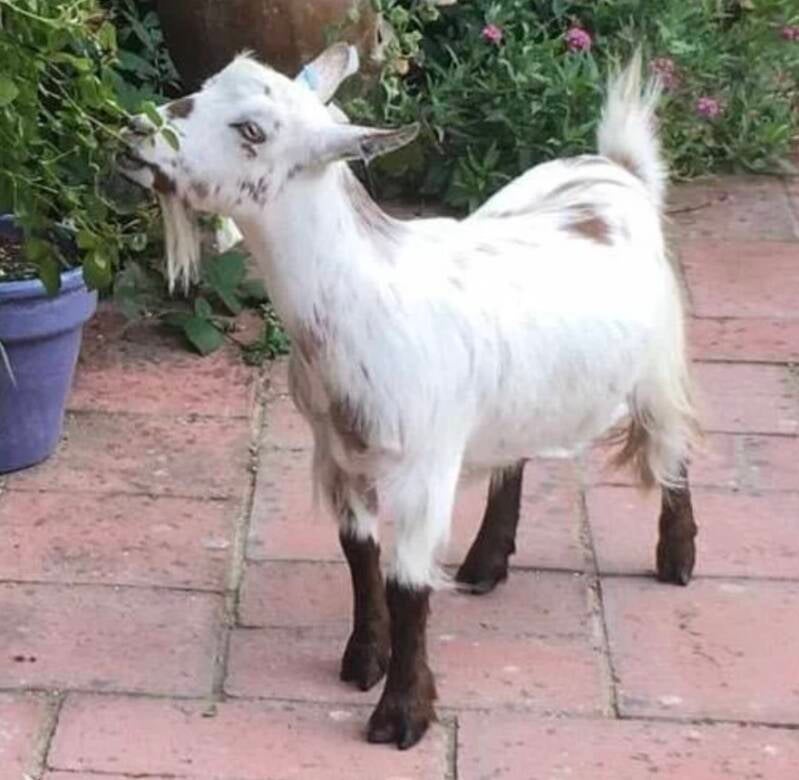
Royal Golden Guernsey
These majestic goats also make fantastic pets. They are extremely sweet natured, intelligent and placid almost to the point of being lazy. They are bigger than Pygmies with females averaging 55kg and males 70kg. They will require a bit more space than Pygmies. They can vary from a creamy, strawberry blond to a dark bronze in colour and some grow long hair that will require grooming. Sadly there are less than 1400 of these beautiful goats in the uk.
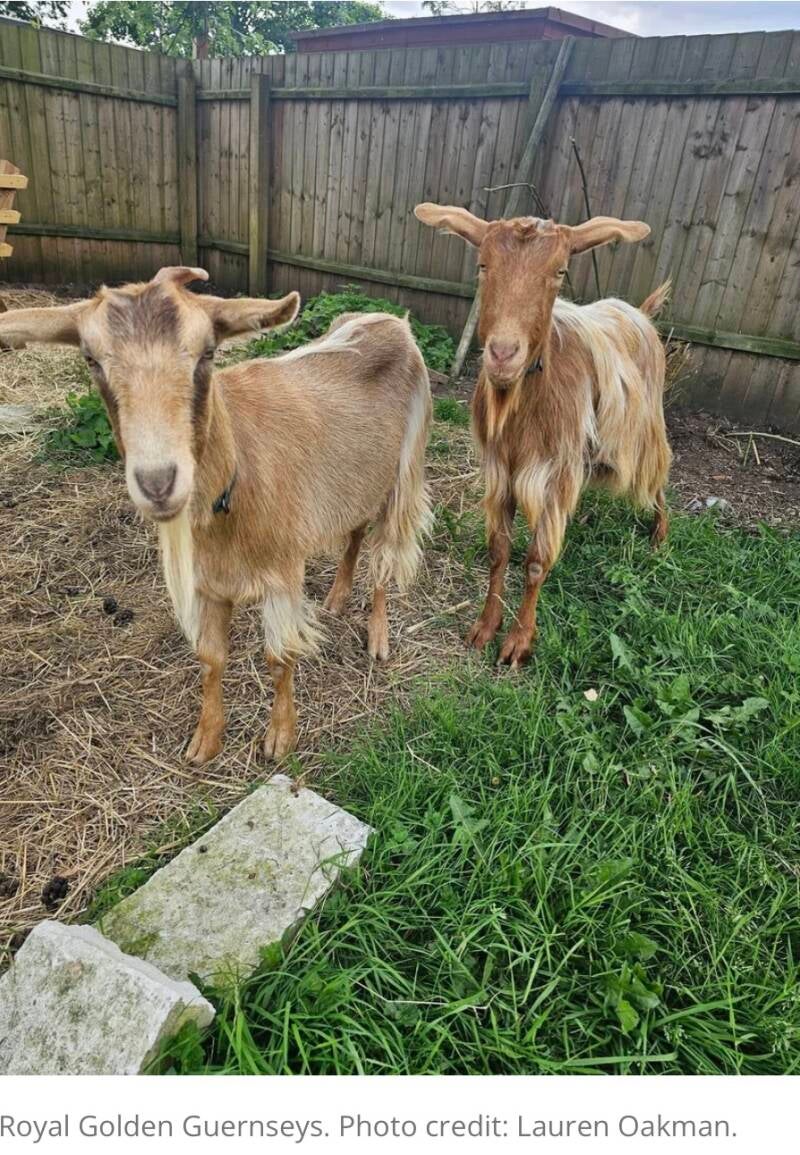
Saanen
A very pretty white/cream, short haired breed. They are known to be a very gentle, sweet natured breed, similar to the Golden Guernsey but bigger. Females average at 65kg while the males can be much bigger at 90kg. They definitely require a good deal of space.
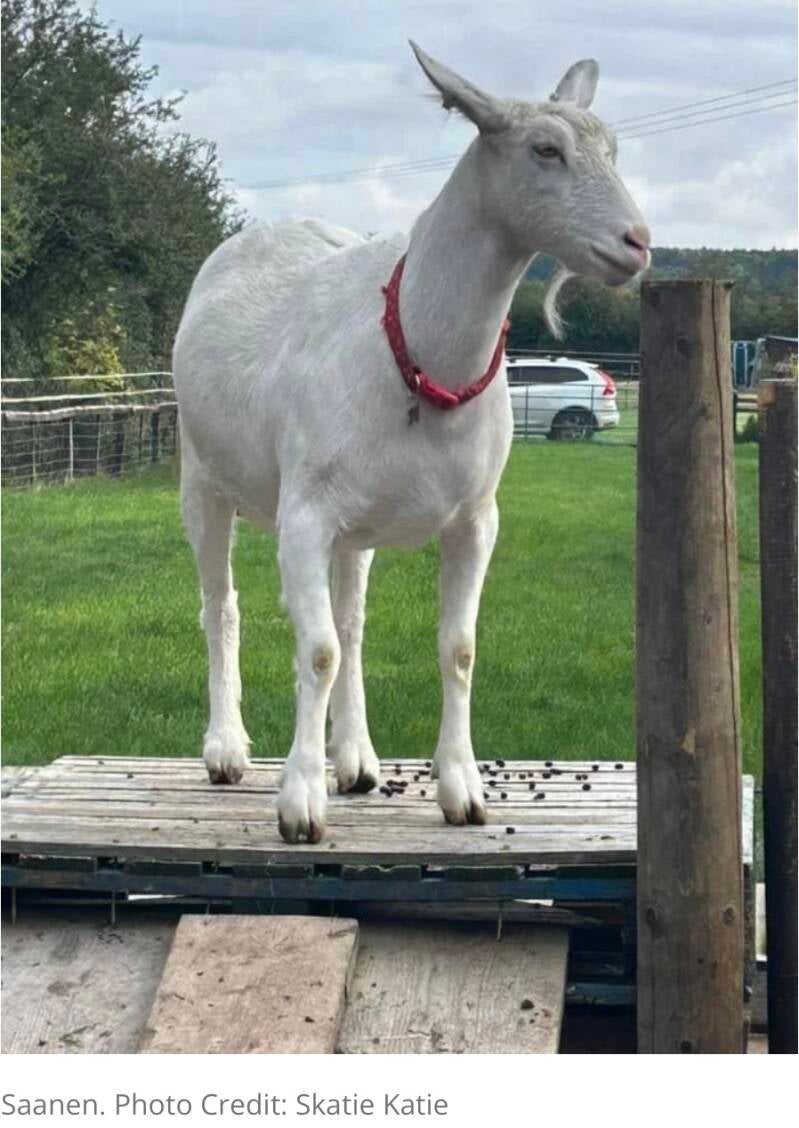
Old English
Gentle, loving and very family friendly as they're great with children. You'll need high, secure fencing if you choose this breed as they are fantastic escape artists! They are slightly bigger than Pygmies (but less round!) females average around 38kg and males 50kg. They come in varying shades of brown, black and grey and are hairy coated. They are extremely hardy and bad weather does not bother them.
Sadly they are now rare with an estimated population of only 250.
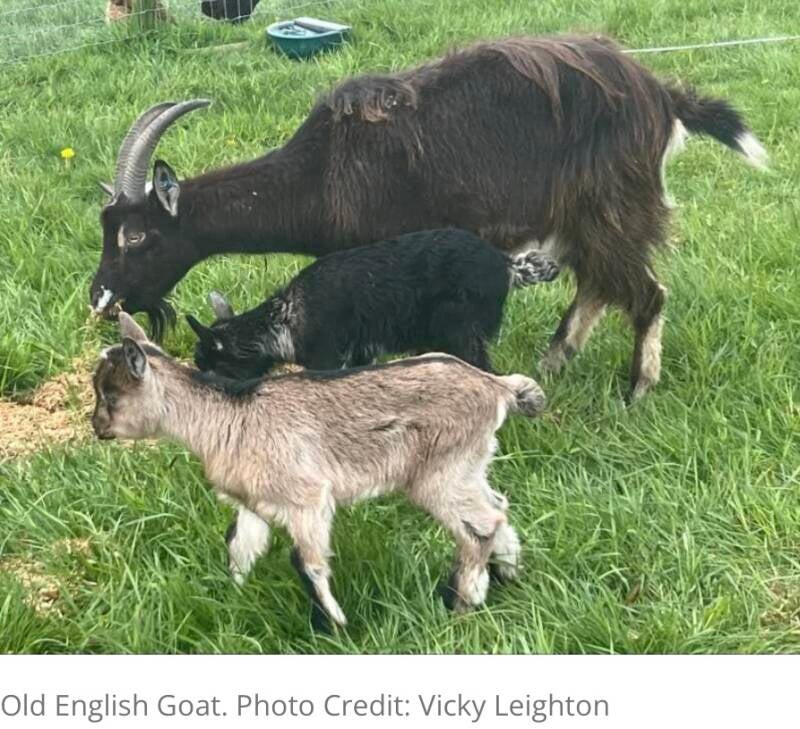
English Goat
The English Goat is a large, rare breed, with females weighing around 60kg and males around 85kg. They and are short haired, generally of a docile temperament but can be capricious. They’re very hardy and thrive in the British climate. Their horns, when mature, tend to curl outwards and they do not have wattles. Not a fussy eater by any means, will forage anything so great for land clearance so need lots of land to forage as they will not be content in small areas. Due to their strength they make good harness goats.
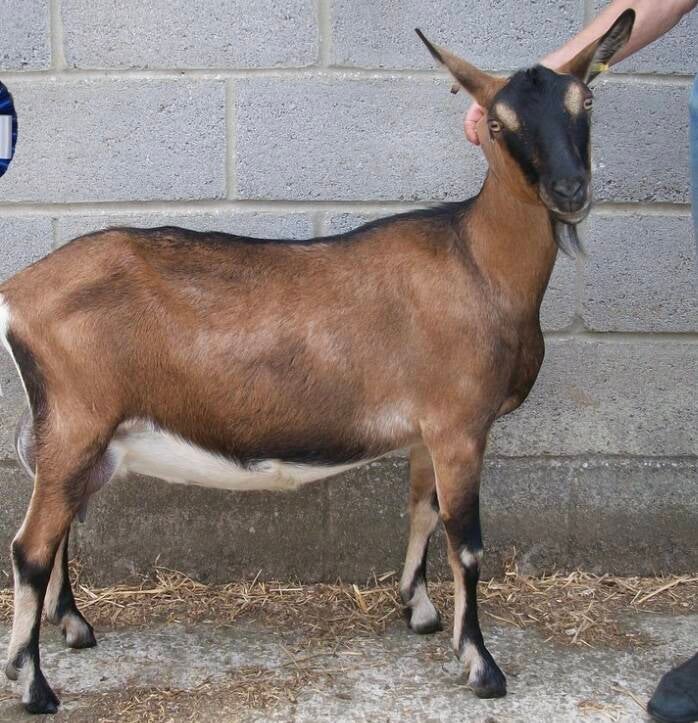
Anglo Nubian
Anglo Nubians are very friendly and affectionate. They are also known for their intelligence and can be very vocal. They have a short, glossy coat that come in a variety of colours and patterns. These are one of the larger breeds with females reaching 110kg and males 140kg so will need a lot of space.
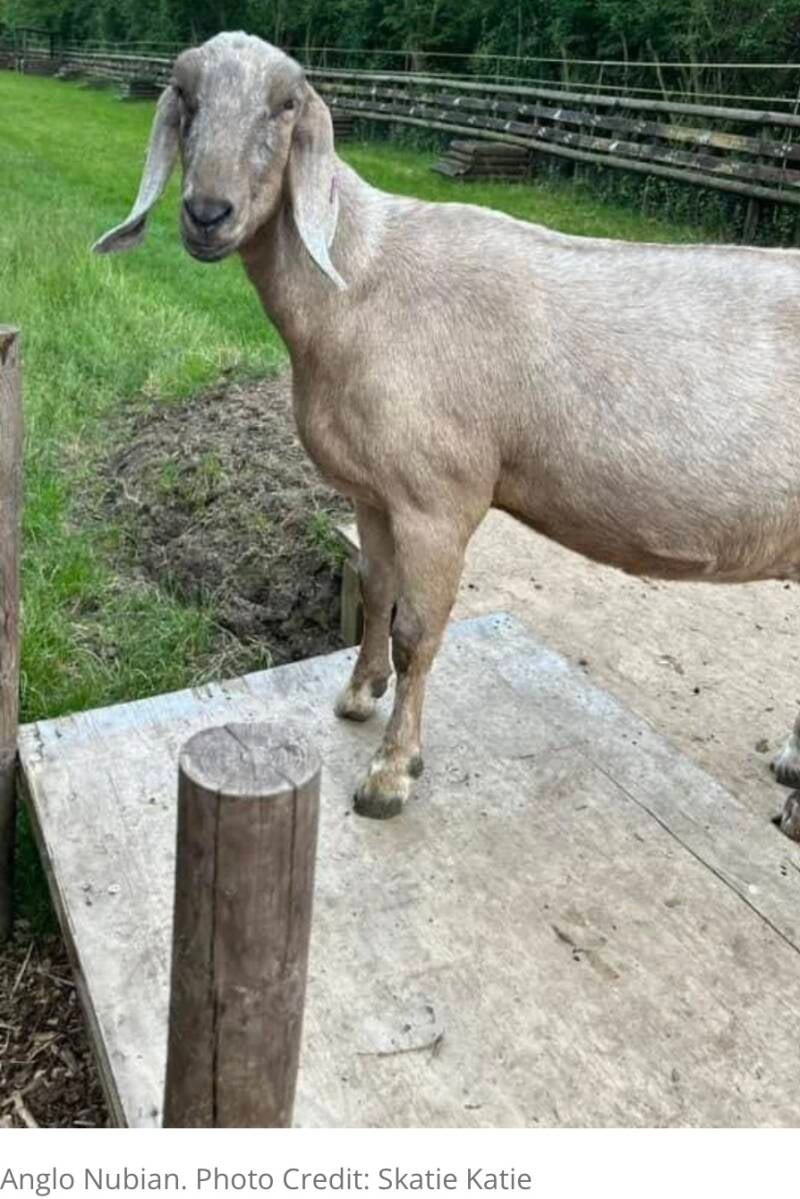
Boer
These are a very family friendly breed if they grow up with children, they love cuddles and playtime. Their coat is short and glossy, mostly white with a dark red/brown head. They are often chosen for petting zoos and make fantastic companion animals for donkeys. They are also one of the bigger breeds with females averaging 100kg and males 135kg.
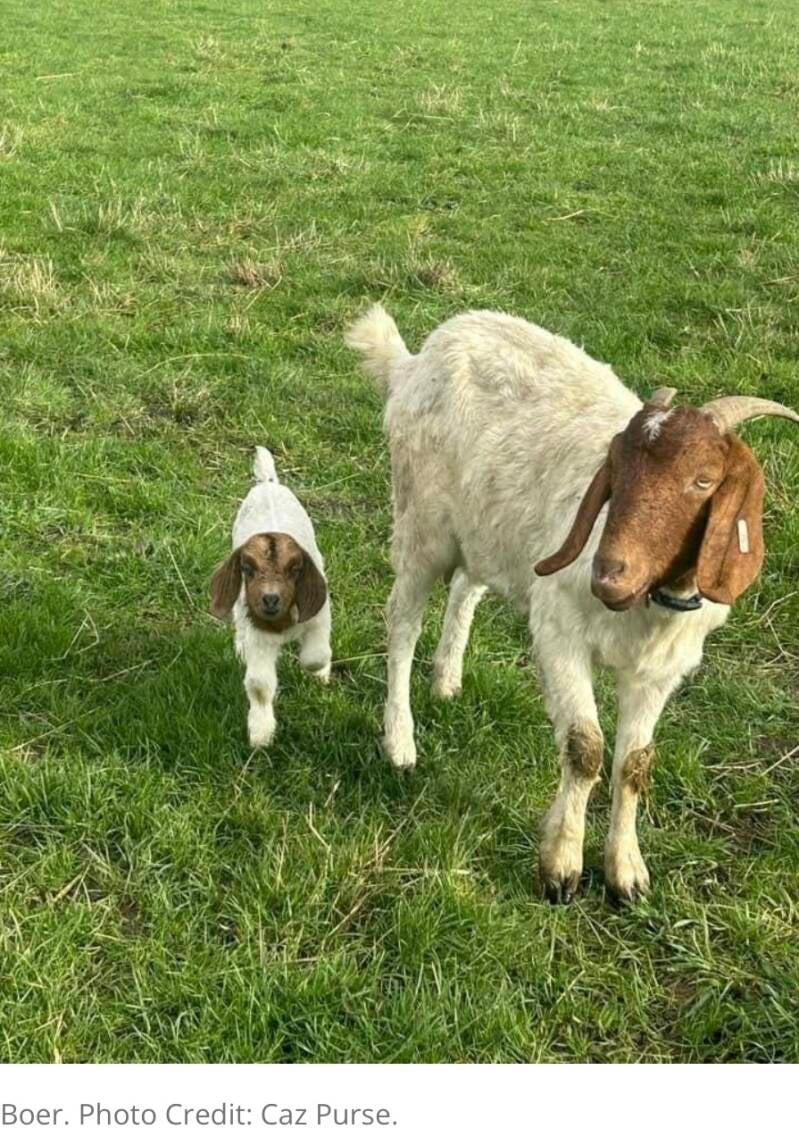
Angora
This striking breed is very quiet and shy but when they know you are calm and trusting. They’re not adventurous and prefer to be in larger groups. Females average at around 50kg while males are around 80kg so not big as goats go. Angoras require a little more of a hair care routine due to their long curls and may be more prone to mites and lice. They should be sheared once or twice a year to keep them in good condition and comfortable. Foot care is extremely important as they can suffer issues especially in wet weather. They require a bit more attention to their vitamins and minerals. The upside of the extra care they need (aside from goaty snuggles) is all the mohair you can use for knitting and crochet! These goats are probably not for beginners but give back so much.
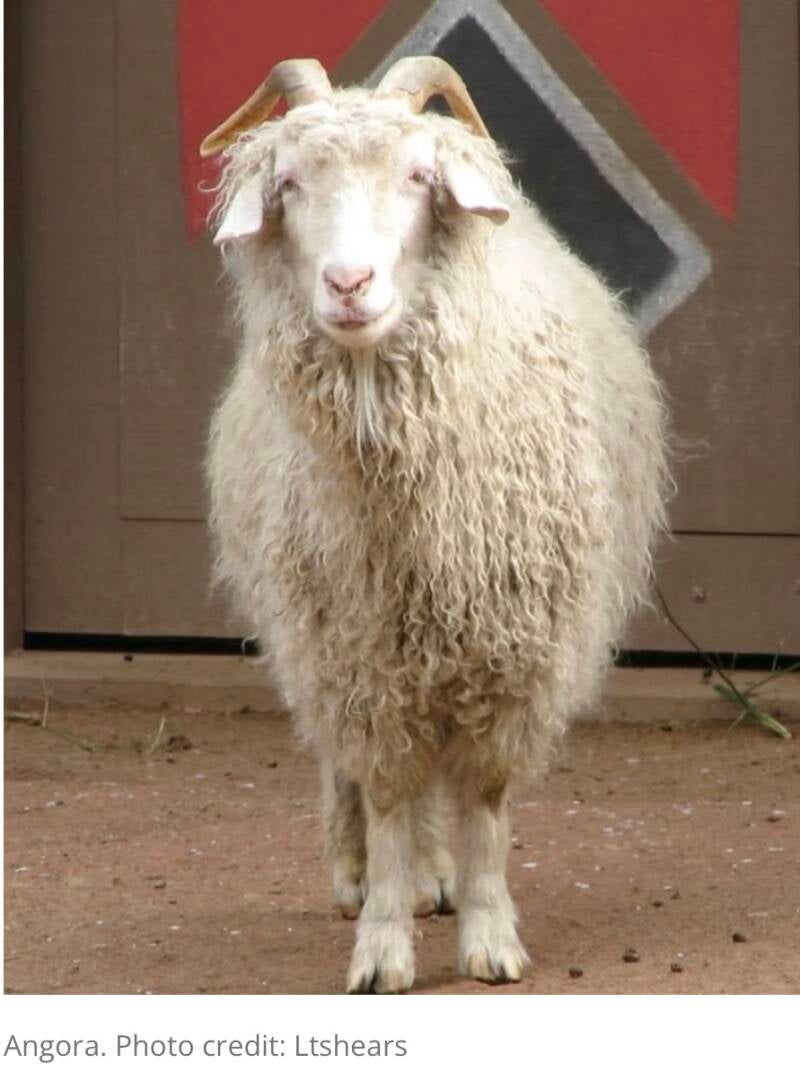
Toggenburger
These are friendly, loving but lively goats that will need lots of space and things to keep them occupied as they are prone to escaping when bored, they respond well to training so spending lots of time with them harnessing their talent will keep them busy. They tend to be fearful of other animals so are best kept on goat only properties. Females average at 55kg while males are around 75kg.
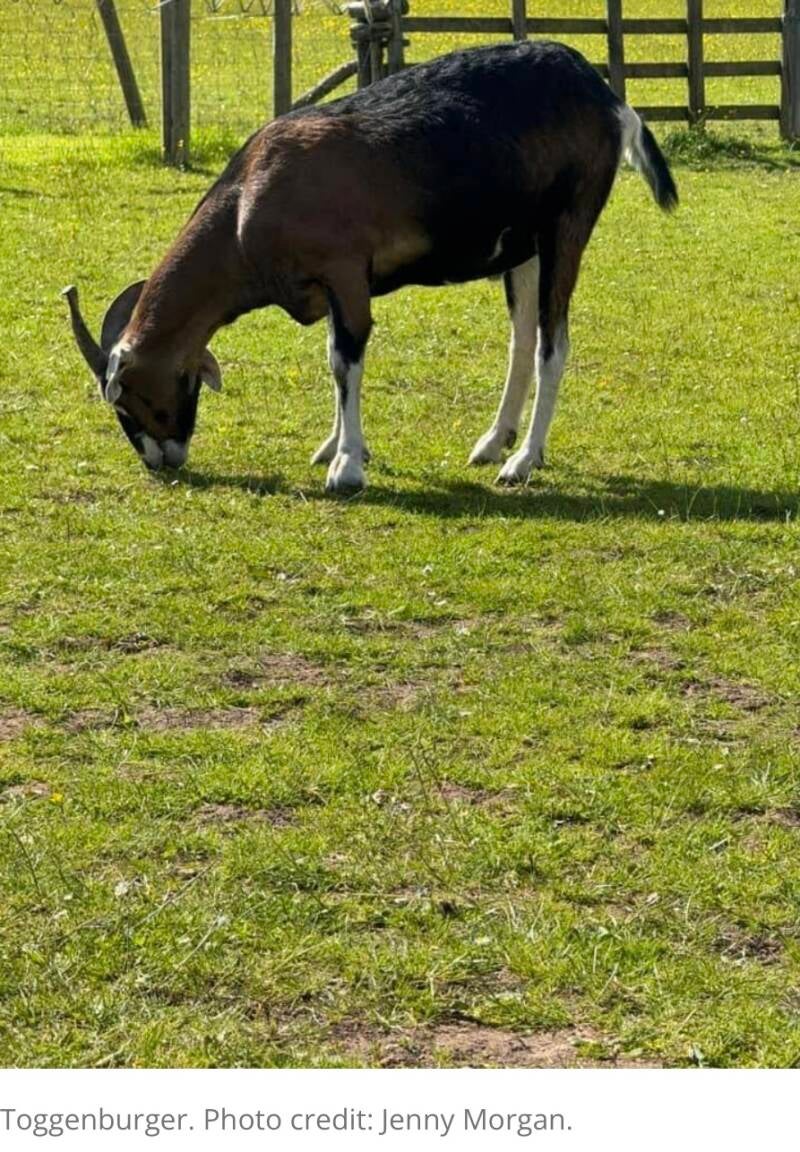
Create Your Own Website With Webador